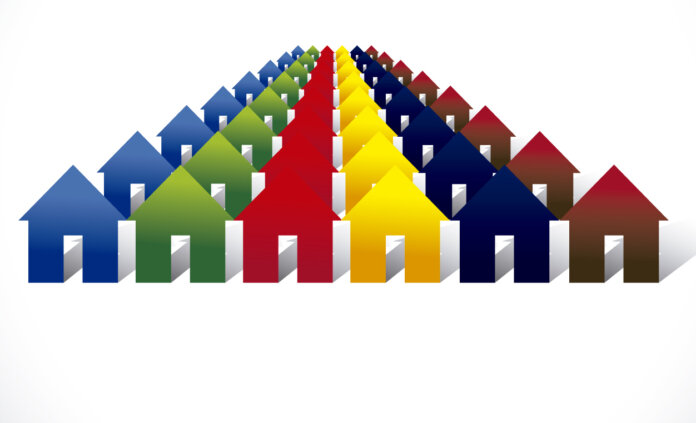The Data & Analytics division of Black Knight Inc. has released a high-level summary of its latest Home Price Index for July 2023. Even with interest rates hovering near 7.25%, home price growth continued in July, reaching yet another record high for the third month in a row. However, Andy Walden, Black Knight vice president of enterprise research, explains there were some mixed signals in the market data for July, raising questions about a potential downshift.
“After picking up some small momentum in May and June following 14 straight months of slowing, the annual growth rate spiked to 2.3% in July,” notes Walden. “Further reacceleration is likely on tap for August as well, given that adjusted prices are already up 4.4% so far this year. Even if seasonally adjusted prices were to stop rising tomorrow, annual home price growth would climb to +2.9% by August and cross +4% by November, simply due to price gains that are already ‘baked in.’
“If price gains were to maintain their current pace – which is unlikely given how tight affordability has become – it would result in annual gains returning above 7.5% by the end of the year. Either way, further acceleration in annual appreciation is almost a certainty for August. But that’s only half the story in July’s data – the housing market is sending somewhat mixed signals.
“While home prices rose on both seasonally adjusted and non-adjusted bases, July’s 0.23% non-adjusted month-over-month growth was smaller than the 0.34% non-adjusted increase July has seen on average over the past 25 years, suggesting a possible transition may be underway,” Walden continues. “Indeed – in addition to monthly gains slowing below long-term averages – Black Knight data also points to lower average purchase prices and seasonally adjusted price per square foot among recent sales. All of these factors combined underscore the need to focus on seasonally adjusted month-over-month movements rather than simply relying on the traditional annual home price growth rate.”
The July 2023 Black Knight HPI also shows that 99 of the largest U.S. markets had seasonally adjusted price gains; however, growth rates cooled at the core-based statistical area level as well, with three-quarters of markets seeing smaller monthly gains than they had in June. The lone exception: Austin, Texas, with prices there continuing to fall on a month-over-month basis – albeit modestly at this point (-0.1%).
Hartford, Conn., yet again saw the largest price increase, up 1.6% from June, with the following cities seeing seasonally adjusted prices rise by 1.0% or more: Providence, R.I. 1.2%; Philadelphia 1.1%; Cleveland 1%; Pittsburgh 1%; Miami 1%; and Buffalo, N.Y., 1%. Price growth continues to be strongest in the Northeast and Midwest, with Western states seeing more noticeable slowing from June’s growth rates as affordability continues to weigh heavily on those markets.
Image by kreativkolors on Freepik











